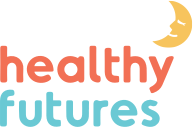Your Body
In weeks 13-17 of your pregnancy, you may experience:
A general sense of well-being.
Noticeable growth in your abdomen – it may be time to start wearing maternity clothing.
A renewed interest in sexual activity – talk to your health care provider if any pain or bleeding occurs during intercourse.
An increase in vaginal discharge – wear cotton underwear and avoid pantyhose and tight clothing. If you experience itching or foul odor, talk to your health care provider.
Weight gain of around ¾ pound to one pound per week. By the end of your pregnancy an average woman can expect to gain around 25-35 pounds. Where does all this weight come from? Here is a quick breakdown:
- Baby: about 8 lbs.
- Placenta: 2-3 lbs.
- Amniotic fluid: 2-3 lbs.
- Breast tissue: 2-3 lbs.
- Blood supply: 4 lbs.
- Additional stored fat for breastfeeding: 5-9 lbs.
- Larger uterus: 2-5 lbs.
Recommendations for the amount of weight gain vary depending on your starting weight so ask your health care provider what is right for you. For more information, visit the WebMD Guide to Healthy Weight Gain.
Your Baby
I am six to eight inches long and weigh five ounces. I receive all my nourishment through the umbilical cord. My eyebrows have formed and my skin is pink and transparent. My heartbeat can now be heard and it is now possible to tell if I am a boy or girl in an ultrasound.
Your Checklist
Start educating yourself on methods of infant feeding.
You will soon need to decide if you want to breastfeed or use formula. Each method comes with advantages and challenges, but breastfeeding is recommended by the American Academy of Pediatrics, the World Health Organization, and UNICEF for at least the first year of life.
- Your breastmilk is the perfect food for your baby. It provides all the right nutrients for optimal growth and development of your baby’s brain and nervous system. Breastfed babies have fewer allergies, colds, and ear infections.
- Breastfeeding provides more for your baby than nourishment. It also helps the baby develop a sense of trust and security.
- Mothers who breastfeed have less risk of premenopausal breast cancer, ovarian cancer and osteoporosis. It increases your caloric needs and may help you lose weight.
Breastfeeding is not always easy but with planning, education and the right resources and support, many families can make it work. Dads and partners play an especially important role In making breastfeeding work for you and your family. A breastfeeding class can help you and your partner prepare. Find a class near you.
Keep eating a healthy and balanced diet.
Eat foods from the four food groups every day. Protein is an essential building block necessary for this time of rapid growth and development. Some excellent protein choices include, peanut butter, lean meats, tuna, nuts, eggs, tofu, and reduced fat dairy products, such as cottage cheese, milk, yogurt, and other cheeses. As a general rule, one serving size of meat is about the size of your palm.
Remember that anything you put in your body; you also put in the baby. Keep avoiding alcohol, drugs and cigarettes.
Pregnancy is a time to start a new healthy future for yourself and your child. If you are feeling the urge to smoke try these things instead: go for a walk; brush your teeth; chew gum; shut your eyes and do deep breathing exercises; ask a non-smoking friend for help; drink water; eat celery, carrots or fresh fruit. Each day, try to put off lighting your first cigarette. Quitting is difficult but there are resources right here in northern Michigan that can support you as you take these important positive steps. Find a resource near you or contact your healthy futures nurse.
Find a health care provider.
If you don’t already have a regular health care provider, now is the time to find one. Find a doctor near you.
Keep wearing the lap-shoulder seat belt in the car.
Start getting in the habit of placing your lap belt as low as possible. As your belly grows you will need to be careful to place the lap belt underneath your belly.
Sign up for prenatal classes.
The information in these classes can help you have a healthier pregnancy and prepare you for birth, breastfeeding and postpartum. They can be a lot of fun and a great opportunity to meet other expecting parents. For information on classes available in your area, talk with your health care provider or Healthy Futures nurse. Classes fill up fast, so don’t delay. Find childbirth classes near you.
Questions to Ask your Health Care Provider
Keep a list of questions you’d like to ask your health provider. It is normal to have many questions and concerns. Here are a few important topics you may want to discuss.
- Weight gain: Recommendations for weight gain vary depending on your starting weight. Ask your health care provider how much you should expect to gain.
- Prenatal Vitamins, Medications and Herbal Remedies. Many medications and herbal remedies should not be taken during pregnancy.
- Remember to attend all your scheduled medical appointments.
- Seafood and Freshwater Fish. Some fish may have trace amounts of mercury, which can affect your baby’s development.
Your Healthy Futures Nurse is also here for you. Contact your Healthy Futures nurse if you have any questions or concerns.




